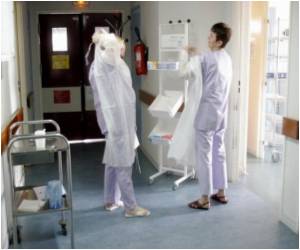A new UT Southwestern Medical Center study indicates that cognitive behavioral therapy in addition to medication improves the long-term success of treatment for children and adolescents suffering from depression.

"Continuation-phase strategies designed to reduce the high rates of relapse in depressed youths have important public health implications, as recurrence of depression is more likely in youths with multiple episodes," said Dr. Betsy Kennard, Professor of Psychiatry at UT Southwestern and senior author of the study published June 17 in The American Journal of Psychiatry.
Relapse rates in youth with major depressive disorders typically range from 40 percent to 70 percent, said Dr. Kennard, also Director of an outpatient program at Children's Medical Center called Suicide Prevention and Resilience at Children's (SPARC).
In this study, the relapse rate for the group of 75 youth who received behavioral therapy for six months following six weeks of initial treatment with the antidepressant fluoxetine, also known as Prozac, was 9 percent. Among the group of 69 youth who received only the drug during this period, 26.5 percent relapsed.
Youth who showed improvement after receiving fluoxetine for an initial six-week treatment period continued in the study, split between the medication-only and therapy plus medication groups. Study participants' ages ranged from 8-17.
"Unfortunately, medication alone is not always enough to prevent relapse," said Dr. Graham Emslie, Chief of the Division of Adolescent and Child Psychiatry, Professor of Psychiatry and Pediatrics at UT Southwestern, and a contributing author of the study. "Identifying novel strategies to prevent future relapses for young people should be a priority. This approach is unique in that treatment was added at a time when the intensity of care is frequently decreasing."
Advertisement
"It is also worth noting that youth who received the therapy had lower medication doses, yet had better outcomes than those on higher dosages in the medication management-only group," said Dr. Kennard.
Advertisement












